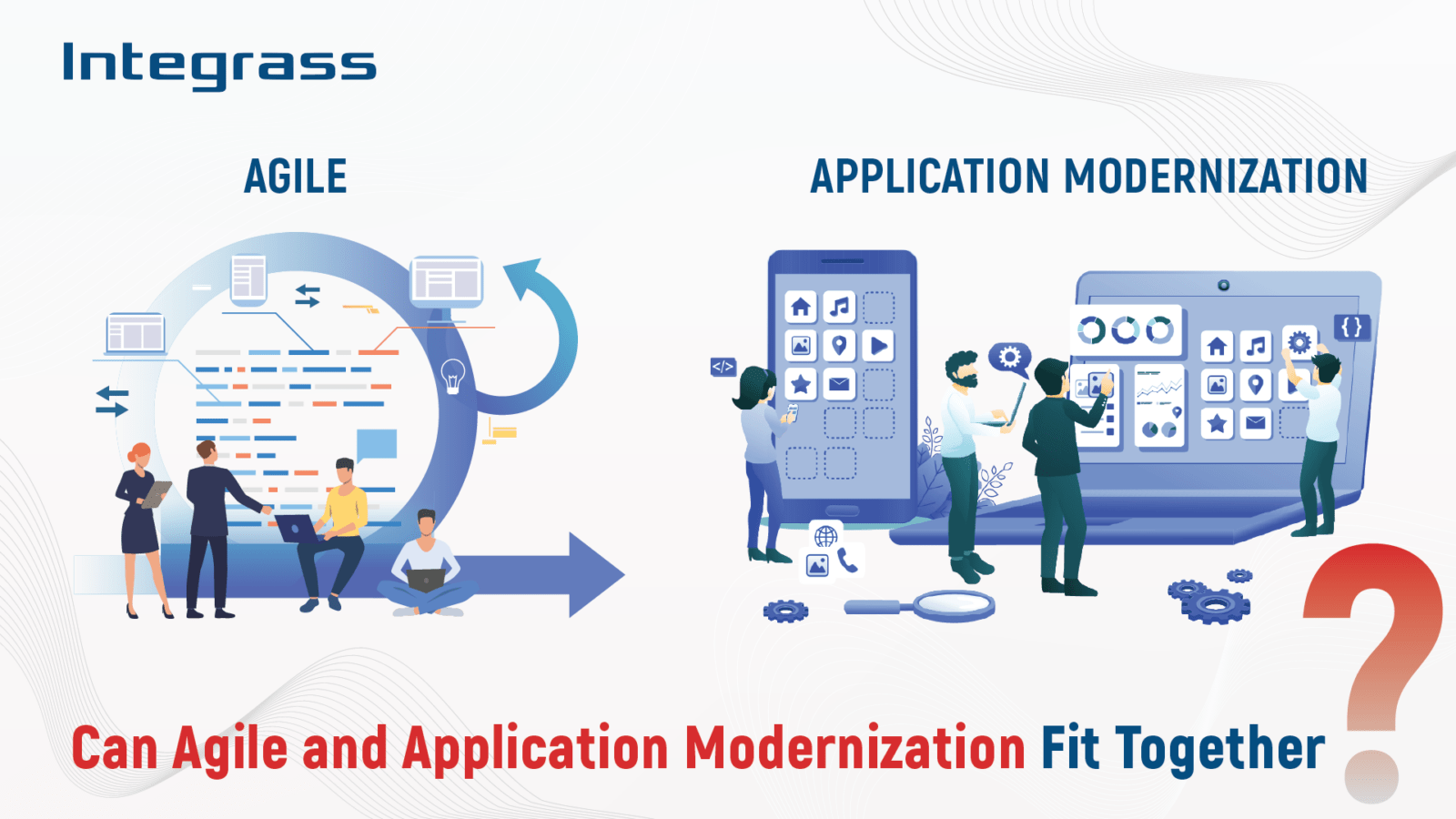With the widespread adoption of the Agile process, software development has become more dynamic. However, the traditional concept for application modernization is one of a rigid development structure that lacks flexibility. This brief explores the possibility of garnering the benefits of an Agile development process when enhancing and modernizing a legacy application.
What is Agile Software Development, and how does it work?
Agile software development is an iterative and incremental approach to software development that emphasizes flexibility, collaboration, and customer involvement. Agile was developed as an alternative to the traditional waterfall approach, which was seen as too rigid and inflexible in many situations.
The main principle of Agile software development is that projects are divided into smaller, more manageable pieces or iterations, with each iteration including all the steps necessary to complete a working, demonstrable software outcome. At the completion of each iteration, an operating version of the software developed can be demonstrated to the customer for immediate feedback. This feedback is then used to make changes or adjustments in the next iteration; allowing course corrections in effectively real-time.
The Agile approach has been proven to be very successful, and many organizations have adopted it for their software development projects.
What is Application Modernization, and how does it work?
Application modernization is making an existing application more compatible with modern technology standards. Application modernization involves updating the app to run on newer hardware and/or using newer software frameworks that increase speed and efficiency while taking advantage of new features.
Application modernization is essential in extending the life of an existing application and making it possible to take advantage of new capabilities with technological advances.
How do Agile and application modernization fit together?
Agile development is often used for application modernization because the Agile methodology emphasizes speed and flexibility – desirable for any project but arguably even more so when updating existing applications. Agile methodology is well-suited for handling the inevitable changes that occur in application modernization projects. Because Agile focuses on delivering software in small increments, changes are identified more readily and quickly, and any needed course corrections can be made earlier in the process.
The two concepts work well together. Using the Agile methodology during application modernization allows organizations to ensure that the resulting applications will be improved and fit-for-purpose. They should fit seamlessly into existing flows, allowing organizations to remain agile (no pun intended), responsive to change and thereby competitive in the marketplace.
Key benefits of using Agile for Application Modernization
Because Agile methods emphasize iterative development, allowing constant feedback and incremental changes, there are many benefits to using this process.
- Greater Flexibility: Perhaps most importantly, using Agile for application modernization helps organizations move more quickly and flexibly. This is a major benefit in avoiding the common pitfalls of many large-scale projects, such as scope creep and cost overrun.
- Reduce Risks: The Agile methodology allows organizations to get feedback from users earlier and faster in the process. This early feedback is invaluable in reducing risks and ensuring a positive outcome.
- Improved communication: Another benefit of using Agile for application modernization is increased communication and collaboration between developers and business stakeholders. Agile strongly emphasizes close cooperation between these two groups throughout the software development process, helping ensure the outcome meets the business objectives.
Challenges of using Agile for Application Modernization
As we have discussed, there are many benefits to using Agile for application modernization. However, there are a few challenges that users need to be aware of.
- Technical Debt: Legacy applications carry a lot of “technical debt” because they were built using outdated technology. This can make the modernization process using Agile a lot more complex as it could add significantly to the number of tasks involved in refactoring a lot of code to bring it up-to-date.
- Multiple Stakeholders: Application modernization can be a complex undertaking involving many different stakeholders and team members. Coordinating all these other moving parts can be more complex and challenging using the Agile approach.
Conclusion
Agile and Application Modernization can be used together to enhance the quality of your software development projects. They can help you deliver better software faster and with fewer defects when used together.
Despite possible challenges, many organizations find that the benefits of using Agile for application modernization outweigh the complexities. When done correctly, Agile can help streamline and speed up the modernization process while leading to more predictable and fit-for-purpose outcomes.
Whether you’re looking for ways to increase visibility during a modernization project, to improve the efficiency of the software development process, or to improve the quality of the delivered product, implementing Agile for application modernization could be a great fit for your company. Contact us today to learn more about the most efficient and effective ways to modernize your legacy applications.









